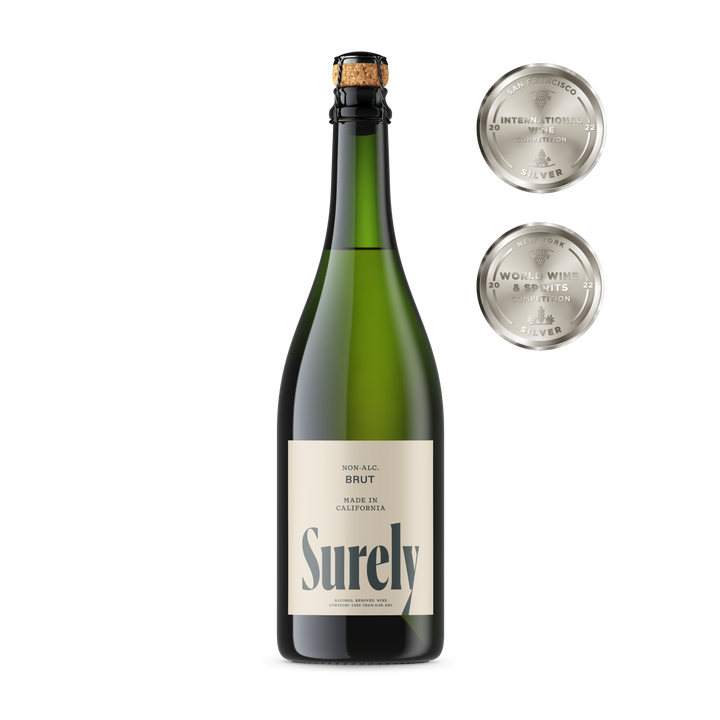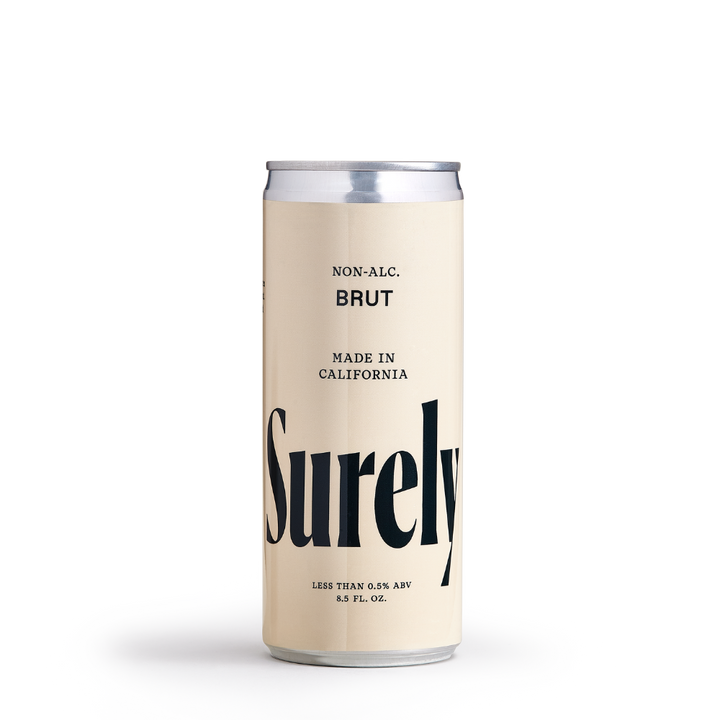There are several health benefits of not drinking alcohol. And we’re not just talking about no more hangovers — though that’s definitely an added bonus.
Some of these health benefits apply to those struggling with alcohol use disorder and alcohol withdrawal. For now, though, let’s focus on the positive changes you can experience by reducing the amount of alcohol you drink or cutting it out completely.
Is it healthier not to drink alcohol? Yes, not drinking alcohol is healthier than drinking, even in moderation. In fact, a massive global 2018 study suggests that no amount of alcohol actually improves your health.
Here’s the good news: While there may be some positive health effects of certain compounds in wine, you don’t actually need to drink alcohol to get those benefits! Even if you live more sober curious, rather than practicing total sobriety, you’ll enjoy many of the health benefits of not drinking alcohol.
What are some benefits of quitting for even just a month? When you don’t drink alcohol for a month, you might lose weight, reverse liver damage, improve the look of your skin, get better sleep, and so much more! We’ve provided a timeline of benefits below from one day to one year.
Dry January is looking like a great choice now, huh?
Not ready to say goodbye to wine? Surely’s non-alcoholic wine selection offers genuine taste and benefits of wine without the drawbacks of alcohol.
Non-Alcoholic Sparkling Brut

$24.99
Award-winning alcohol-removed bubbly white. Hints of apple, pear, honey and citrus notes. Better than champagne.TASTING NOTES: The vibrant combination of apple, pear, honey and citrus notes intertwined with a crisp backbone. The acid and sweet notes of the fruit pair… Read More
Table of Contents
2. Lower Risk of Cardiovascular Disease
Timeline of Health Benefits When You Stop Drinking Alcohol
1. Improved Liver Function
You can expect improved liver function almost immediately after you stop drinking alcohol. Experts predict that most drinkers’ livers can return to completely normal function after 4-8 weeks of no alcohol.
Your liver will breathe a sigh of relief when it no longer has to process all that alcohol and can focus on its other functions, like regulating chemical levels in your blood and efficiently excreting bile.
Heavy drinkers often have an overworked liver. Cirrhosis of the liver and fatty liver disease are more common in people with very heavy drinking habits.
Sobriety will let your liver rest after all that work of constantly processing alcohol out of your blood.
Alcoholic beverages also trigger oxidative stress in the liver, since alcohol diminishes the liver’s antioxidants. Beyond that, once damage is done to the liver, a prolonged immune response increases inflammation in your liver.
Not drinking alcohol fixes these problems in the liver, too.
2. Lower Risk of Cardiovascular Disease
When you stop excessive drinking, your risk of heart disease goes down. Since heart disease is the leading cause of death in the United States, it would be a wise idea to lower your risk if possible.
Heavy drinking seems to increase cholesterol levels, a predictor of heart disease.
Examples of cardiovascular diseases:
- Heart attack
- Stroke
- High blood pressure
- Peripheral arterial disease
- Coronary artery disease
- Deep vein thrombosis
- Vascular disease
- Marfan syndrome
- Cardiomyopathy
- Atrial fibrillation
Important: When you drink wine moderately (one drink a day for women, 2 drinks a day for men), this actually decreases your risk of heart disease – likely because of the resveratrol in wine. Anything beyond that moderate amount significantly increases your risk of heart disease, including deadly events.
A mountain of evidence shows that heavy drinking, binge drinking, or alcohol use disorder can lead to cardiovascular disease. Quitting the sauce is a great way to lengthen your life.
3. Reduced Risk of Cancer
Cancer is the second leading cause of death in the United States. The good news is that not drinking alcohol reduces your risk of cancer.
Thanks to a marketing-savvy alcohol industry — and our society’s love of drinking — few people realize that drinking alcohol increases your risk of cancer.
In a survey of 2100 English adults, only 13% were aware of the link between alcohol and cancer without being prompted. When directly prompted, only a third of people knew (or guessed correctly) that alcohol was linked to cancer.
Alcohol is a known human carcinogen. It has been shown to increase the risk of the following types of cancer:
- Liver cancer
- Oral cancer
- Breast cancer
- Pharynx cancer
- Larynx cancer
- Esophagus cancer
- Stomach cancer
- Colorectal cancer
- Ovarian cancer
Even light drinking (having one drink or fewer per day) has been associated with a slightly higher risk of breast cancer in women and colorectal cancer in men.
The health benefits of not drinking include reducing your risk for cancer. Awareness of this alcohol-cancer link is low, so feel free to bring it up at your next social gathering (just don’t forget to add how great your alcohol-free wine options are!).
Non-Alcoholic Brut Can 4-Pack

$24.99
Dry non-alcoholic bubbly white. Hints of apple, pear, honey and citrus notes. Better than champagne.TASTING NOTES: The vibrant combination of apple, pear, honey and citrus notes intertwined with a crisp backbone. The acid and sweet notes of the fruit pair beautifully… Read More
4. Weight Loss
Losing weight is a nice benefit of not drinking alcohol. Having more than one drink of beer or booze a day is linked to being overweight or obese. Giving up alcohol lowers that risk and may even help you lose that belly fat.
Cutting the empty calories found in alcohol is the most obvious way that not drinking helps you lose weight.
A can of beer contains 154 calories. Mixed drinks are worse once you add in all those sugars and other carbs. A single mojito can contain 250 calories. That alcohol intake adds a lot of extra calories in addition to your normal daily diet.
Also, when you drink alcohol, your ability to make smart dietary choices gets weaker and weaker. After downing a beer, you’re more likely to eat a high-calorie plate of nachos. Not drinking helps you avoid these extra calories.
When you stop drinking, you also get better sleep, leading to normalized appetite and metabolism. If your sleep quality is poor, hormonal changes can lead to increased appetite, slower metabolism, and more stress. Stress hormones make it harder to burn those pesky fat cells.
If you think about it, drinking alcohol makes it less likely that you will exercise. Whether you’re spending the time enjoying those glasses of wine instead of exercising or you’re reeling from a hangover headache, alcohol is more likely to prevent exercise than encourage it.
Fitness and an active life are so important to weight loss and overall health.
Can you lose belly fat by not drinking alcohol? If you’re a heavy drinker or binge drinker, not drinking alcohol can help you lose belly fat. Sobriety decreases your stress hormones that make fat harder to burn. You’ll also cut carbs and calories and become more likely to exercise.
5. Healthier Skin
Not drinking alcohol may lead to healthier, better-looking skin — probably because of the havoc drinking wreaks on your hydration. Since alcohol consumption is associated with many skin problems, not drinking may improve your skin health quite a bit.
Some experts claim you will see improvements in your skin in as little as one week after your last drink, and that your skin may completely renew itself within a month.
How long before you feel the benefits of not drinking? It may take one week to one month before you feel the benefits of not drinking. Some experts claim your skin will look better after a week. Your liver will start to heal almost immediately. But most health benefits of not drinking take about a month to fully set in.
Even a self-proclaimed Botox guru, Dr. Michael Prager says, “Even the very best Botox will never give you a glow as vibrant as a couple of months off the bottle.”
Heavy alcohol use (more than one drink a day) was associated with “upper facial lines, under-eye puffiness, oral commissures, [and] midface volume loss”.
These common skin conditions are linked to alcohol:
- Hives
- Flushing
- Jaundice
- Psoriasis
- Itchy skin
- Eczema (especially on the scalp)
- Rosacea
- Porphyria cutanea tarda
Healthier skin is a proven health benefit of not drinking. If you deal with any of the skin conditions mentioned above, sobriety can be your beauty secret.
6. Better Sleep
Although alcohol is a sedative that slows brain function, triggering feelings of sleepiness and relaxation, drinking alcohol is actually pretty bad for your beauty sleep.
Alcohol may make you drowsy at first. But once you fall asleep, the alcohol can wake you up throughout the night.
Drinking right before bed often disrupts REM (rapid eye movement) sleep, the all-important stage of slumber that may be linked to dreaming, restfulness, and memory. It may even interfere with your breathing.
According to the Sleep Foundation, “the consumption of alcohol – especially in excess – has been linked to poor sleep quality and duration.”
Alcohol disrupts sleep and lowers sleep quality. Drinking alcohol increases a patient’s risk of developing sleep bruxism(nighttime teeth grinding), which can cause morning headaches, tooth damage, and TMJ disorder.
To further complicate things, getting bad sleep tanks your energy levels during the day.
7. Less Frequent Sickness
You’ll get sick less often if you don’t drink because excessive alcohol affects your immune system.
Your immune system is what fights off infections and diseases. Therefore, abstaining from alcohol makes it easier for your body to naturally fight off infection and diseases.
Like heart disease, one drink a day may improve immune system health — namely reduced inflammation and improved responses to vaccinations. Anything more than one drink per day is very bad for your immune function.
Heavy drinking is associated with increased bacterial and viral infections.
It is proven that alcohol disrupts your immune system’s ability to fight and recover from bacterial and viral infections, as well as liver disease, lung disease, cancer, or simple injuries and wounds.
When you don’t drink, your immune system is stronger, meaning you’ll experience less frequent sickness. However, it’s important to know that immune dysfunction is prevalent in our society for a variety of reasons. Alcohol is just one element that screws up your immune system.
We can probably all agree after a pandemic that improving our immune systems is a good idea.
8. Better Concentration
Alcohol messes with your concentration.
It has been known for decades that mental functions like concentration and vigilance are impaired when someone is well below the legal blood alcohol level limit.
A 2017 study shows a huge portion of American undergraduate students drink at a hazardous and harmful rate — which literally everyone in the country could have guessed. You could probably also guess that it affects their ability to concentrate and perform well academically.
It’s a no-brainer that “high levels of alcohol consumption are associated with poor academic performance and mental health outcomes among [undergrad] students.”
Alcohol makes it hard to concentrate at work, even the morning after. Drinking can worsen your job performance.
Cut out alcohol from your life, and your concentration will get better, as well as your school and/or job performance.
9. Improved Mental Health
Not drinking can improve your brain health. Not only can poor mental health lead to drinking, but drinking can also lead to poor mental health.
In the short term, alcohol can reduce anxiety and release your inhibitions. But anything beyond a drink a day increases the risk of new or worsening mental health problems.
Alcohol can make depression and anxiety worse. Excessive alcohol drinking, in particular, has a net negative impact on emotional regulation.
Heavy drinking can lead to mood changes, increased aggression, and paranoia.
When it comes to mental health, it’s a chicken-egg question. Which came first? The alcohol, or the mental health issues? In most cases, it’s a mix of both.
If your loved one is struggling with mental health concerns and frequent alcohol consumption, encouraging them to seek help for their addiction and mental health may significantly improve their life.
Timeline of Health Benefits When You Stop Drinking Alcohol
When you stop drinking, your body undergoes a transformative journey, including improved hydration, better sleep, weight loss, liver regeneration, clearer skin, lower blood pressure, and reduced risk of chronic diseases over time.
Psst! We wrote an extensive piece about what happens to your body when you quit drinking. Like the timeline below? Read our more detailed review of how your body responds to being free of booze over time.
Health benefits when you stop drinking (from one day to 1 year) go as follows:
1 Day Without Alcohol
Improved Hydration. Within just one day of abstaining from alcohol, the body starts to rehydrate. Alcohol is a diuretic, and without it, you'll begin to retain more water.
1 Week Without Alcohol
Better Sleep. After a week of not drinking, your sleep patterns improve. Alcohol disrupts REM sleep, and without it, you experience more restful sleep.
2 Weeks Without Alcohol
Weight Loss. Many people notice a slight weight loss after 2 weeks of not drinking. Alcohol is calorie-dense, and cutting it out can lead to a reduction in calorie intake.
1 Month Without Alcohol
Liver Regeneration. Your liver starts to repair itself. One of the most significant health benefits of quitting alcohol is the restoration of liver function.
3 Months Without Alcohol
Clearer Skin. Without alcohol, your skin may become clearer and more hydrated. Alcohol can dehydrate the skin and exacerbate skin conditions.
6 Months Without Alcohol
Lower Blood Pressure. Your blood pressure typically decreases, reducing the risk of hypertension and related health issues.
9 Months Without Alcohol
Improved Immune System. Your immune system becomes more robust, making you less susceptible to infections.
1 Year Without Alcohol
Reduced Risk of Chronic Diseases. After a year of sobriety, the risk of various chronic diseases, such as liver disease and certain cancers, significantly decreases.
Health Risks of Drinking Too Much Alcohol
Alcohol is more destructive than you know, particularly when you binge. There are innumerable health risks of drinking too much alcohol.
Yes, drinking one glass of wine a day may improve heart health. But any more than that, and you’re looking at an increased risk of heart disease, cancer, obesity, and so much more. You can’t afford heavy drinking or even just temporary binge drinking. Your health is too important.
In general, drinking alcohol negatively impacts your well-being — the more you drink, the worse you feel.
Years of research show that alcohol increases your risk of:
- Heart disease
- Cancer
- Obesity
- Liver disease
- Automobile accidents
- Immune dysfunction
- Depression
- Addiction
- Stomach bleeding
- Psoriasis
- Eczema
- Rosacea
- Jaundice
- Hives
- Worsening diabetes symptoms
- Erectile dysfunction
- Vaginal dryness
- Birth defects or other risks to a fetus or infant (if drinking while pregnant or breastfeeding)
And that’s not all. Alcohol plays a role in 1 out of every 3 violent crimes. Alcohol misuse costs about $250 billion a year.
Plus, alcohol is a buzzkill (forgive the terrible pun…) for many medications. Alcohol reacts poorly with various prescription and over-the-counter drugs, including antidepressants, painkillers, and acetaminophen.
What happens to your body when you don't drink alcohol? If you’re a heavy drinker, you’ll probably experience withdrawal symptoms when you stop drinking alcohol. These symptoms may include anxiety, cold sweats, shakiness, nausea, and vomiting.
If you experience these symptoms after quitting alcohol, you may be struggling with alcohol addiction. If you believe you have excessive alcohol consumption and plan to go cold turkey on your substance use, it’s smart to detox under the supervision of a healthcare professional.
Should You Quit Drinking?
The decision to abstain from alcohol is a powerful one, unlocking so many positive changes in your body over time. From improved hydration within a day to reduced chronic disease risks after a year, the journey toward an alcohol-free life is a testament to the body’s resilience.
Although one glass of wine a day can improve your heart health, the risks far outweigh the benefits.
What are some good reasons not to drink alcohol? The many good reasons to quit drinking include weight loss, better sleep, a lower risk for major diseases, an enhanced immune system, healthier skin, and lower cancer risks.
For many people, life is just better without alcohol.
Living a sober lifestyle can be difficult, but for those of us who still want to answer cravings for boozy beverages, there are plenty of alcohol alternatives to choose from that make it easier.
Try Surely’s unique alcohol-removed sauvignon blanc or, if you’re feeling fun, make yourself a delicious mocktail! 🍹
Going sober is right for you if you are a heavy drinker, a binge drinker, or if you suffer from any of the many diseases that alcohol has been linked to. Plus, even without a disorder, your health can still benefit from living sober.
If you struggle with alcohol use disorder, please contact one of these support groups:
- Substance Abuse and Mental Health Services Administration 800-662-4357
- Alcoholics Anonymous
- Various local wellness centers may work with your insurance
There are people out there eager to support those who need it. The current National Institute on Alcohol Abuse and Alcoholism (NIAAA) guidelines for alcoholism treatment include therapy, medication, and management of related diseases. There is no shame in seeking help.
Sources
- Alcohol use and burden for 195 countries and territories, 1990–2016: a systematic analysis for the Global Burden of Disease Study 2016
- Alcohol and the Immune System. Alcohol Research : Current
- Oxidative stress in alcohol-related liver disease
- Alcohol's Effects on the Cardiovascular System
- Alcohol Abuse and Cardiac Disease
- Awareness of alcohol as a risk factor for cancer is associated with public support for alcohol policies
- Alcohol Consumption and the Risk of Cancer
- Light Alcohol Drinking and Risk of Cancer: A Meta-Analysis of Cohort Studies
- Type of alcoholic beverage and incidence of overweight/obesity in a Mediterranean cohort: the SUN project
- Alcohol Consumption and Obesity: An Update
- Impact of Smoking and Alcohol Use on Facial Aging in Women: Results of a Large Multinational, Multiracial, Cross-sectional Survey
- Skin diseases in alcoholics
- Alcohol disrupts sleep homeostasis
- Alcohol and the Sleeping Brain
- Opposing Effects of Alcohol on the Immune System
- Innate Immunity and Alcohol
- Alcohol: Effects on Neurobehavioral Functions and the Brain
- The association between levels of alcohol consumption and mental health problems and academic performance among young university students
- The morning after: alcohol misuse and employment problems
- Mental Health, Sleep Quality, Drinking Motives, and Alcohol-Related Consequences: A Path-Analytic Model
- Medical Treatment of Alcohol Dependence: A Systematic Review


![How to Stop Drinking [Temporarily or Forever]](https://dropinblog.net/cdn-cgi/image/fit=scale-down,width=700/34240221/files/featured/how-to-stop-drinking.jpg)
![Teetotal: What is it? [Plus, which celebrities are teetotal]](https://dropinblog.net/cdn-cgi/image/fit=scale-down,width=700/34240221/files/featured/teetotal-the-drunkards-process.jpeg)
